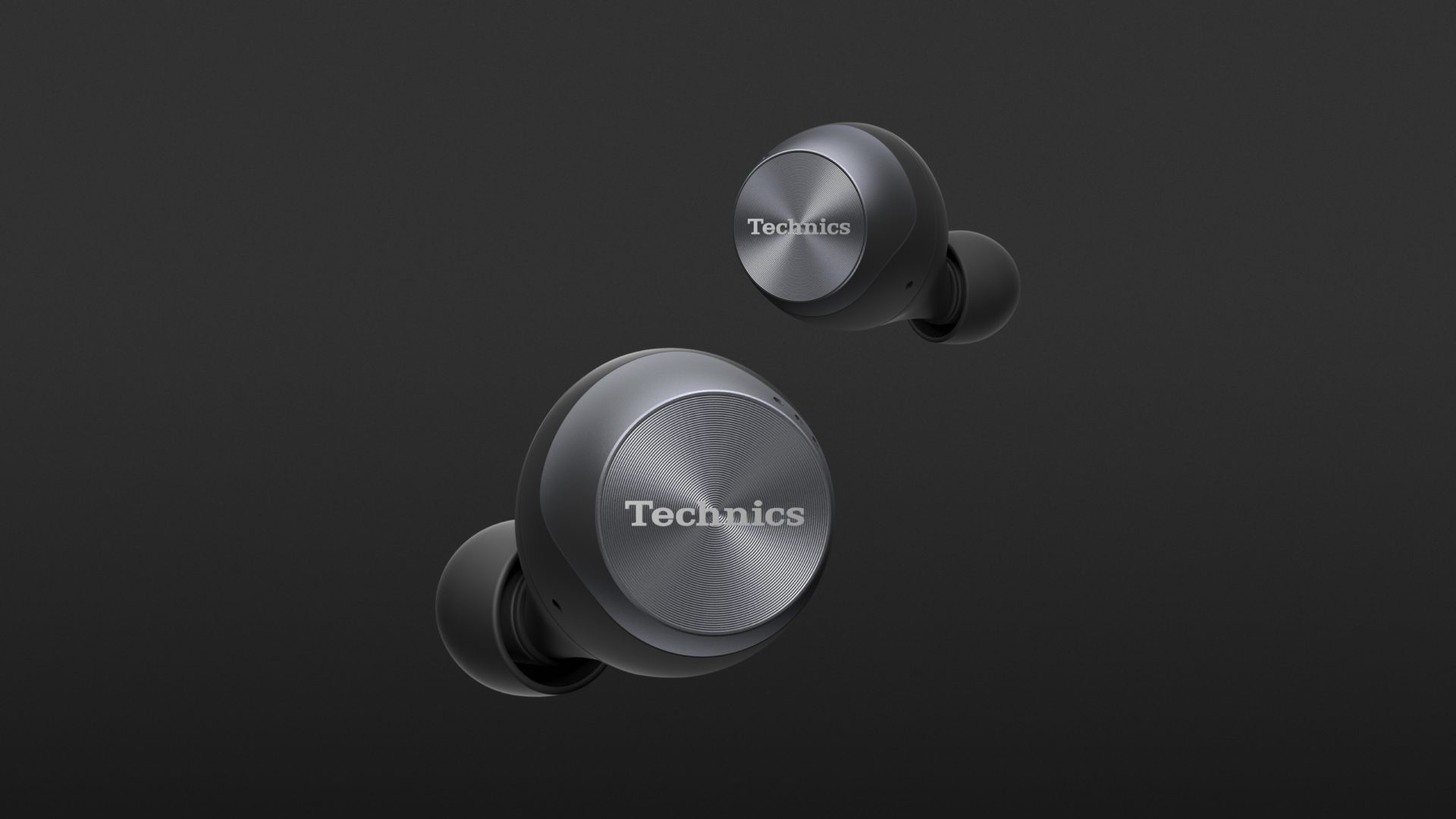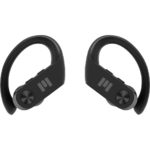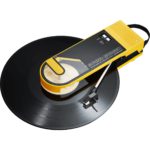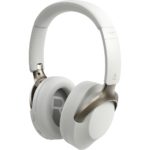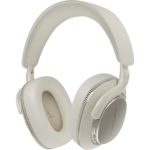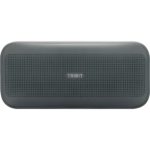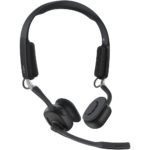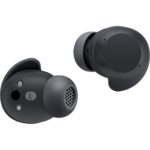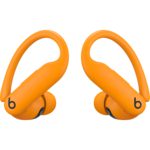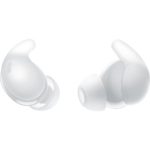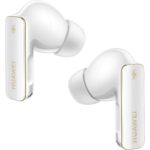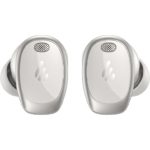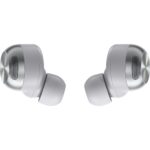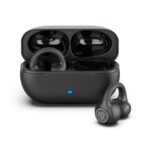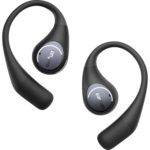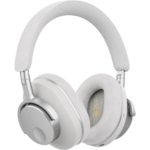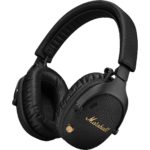As with the Panasonic RZ-S500W, Technics’ debut in the arena of “True Wireless In-Ears with Noise Cancelling” can be described as extremely successful! If you’re looking for long-lasting, completely wireless headphones that sound great and also offer very good noise cancellation, you can’t really go wrong with the Technics EAH-AZ70W.
Technics’ True Wireless debut the EAH-AZ70W feature hybrid noise cancelling, support Bluetooth standard 5.0 and come with a high-quality audio codec, the AAC format. Also, these True-Wireless headphones are splash-proof in accordance with IPX4.
These wireless headphones, available in black or white, weigh just under seven grams on each side. Thanks to five (!) pairs of silicone ear cushions in sizes XS, S, M, L and XL, there should be no problems achieving a “perfect” fit in your ears. When wearing the AZ70W you hardly notice them, the fit is so stable with the correct EarTips that sporting activities such as running should be possible without any problems. The protection against weather-related moisture according to IPX4 (only the earphones, not the charging case) also contributes to their robustness, but hat wearers might have pressure complaints, because the AZ70W protrude a little bit out of the ears due to their design.
With six and a half hours in ANC mode, the runtime is very good, and these in-ears can be fully charged three times in the transport case, so that the total runtime is 19.5 hours including activated noise cancelling. In practice, these values naturally deviate slightly. Technics have also thought of a quick-charging function, and after ten minutes of charging, you can look forward to 70 minutes of listening pleasure including noise cancelling.
Operation
When the headphones are removed from the case, the pairing process starts immediately. If you want to connect the already paired in-ears to another device (multipoint is not supported), you first have to disconnect the connection with the first player and then press one of the two touch surfaces for seven seconds within three seconds after removing it from the case. During this process, the in-ears remember the last ten devices to which they have already been paired. If an eleventh device is added, the oldest connection is deleted.
With various Android and iOS devices we were able to achieve extremely stable ranges: In the open air, the first drop-outs could only be heard after about 36 meters, inside an apartment we did not hear any drop-outs even over one floor.
Tap the left side once to control the Play/Stop function, tap the left side two or three times to decrease or increase the volume. Holding the left touch sensor for two seconds starts the usual voice assistants (including “Alexa built-in”), while the right headphone allows title jumps back and forth by tapping two or three times. Pressing the right for two seconds switches between noise cancelling, transparency mode and normal mode. But it is also possible to answer calls on both sides by simply tapping, while ending a call requires a two-second press.
Control via the touch surfaces worked reliably in our test, commands were executed with a delay of about one second. In terms of controls, there is nothing to complain about here either, all the important functions are covered by the AZ70W. Nevertheless, I would like to have a touch lock on this model, so that any accidental triggering of functions when moving to the headphones into position could be avoided.
App connection
Fine tuning of these headphones can be done with the free “Technics Audio Connect” app for Android and iOS. Only here can both the noise cancelling and the transparency modes be seamlessly adjusted, and under “Sound Mode” a five-band EQ and sound presets “Bass Optimization” and “Clear Speech intelligibility” are available. Changes to the EQ are saved, but multiple presets cannot be created. The most important settings in the app include whether to prioritise sound quality (the AAC codec is used) or connectivity (codec is set to SBC) and after how many minutes an automatic shutdown should occur. A headphone finder function and the possibility to run firmware updates are also available here.
Noise cancelling and transparency mode
With a combination of feedforward and feedback noise cancelling (also known as “dual hybrid noise cancelling”) as well as digital and analogue signal processing, Technics are seeking to impress us with industry-leading noise cancelling. This looks familiar, and indeed, the same technology is at work that can be found in the more affordable “cousin” of the AZ70W, the Panasonic RZ-500W. The Panasonic’s noise suppression was completely convincing in our test, and the Technics are in no way inferior: The ANC literally activates a quiet zone, due to the built-in microphones inside and outside this results in a much more efficient cancellation effect than a purely external placement of microphones. In direct comparison with the Panasonic RZ-500W, the Technics are a bit more subtle, the ANC is not as efficient, and the background noise is also a bit higher with the AZ70W – even though both use the same firmware (01.80).
The intensity of the noise-cancelling, adjustable via the app, is very subtle, just like the Panasonics. At the lowest level, a little more noise reaches the ear, but sometimes the differences are hardly noticeable.
The transparency mode (here “ambient noise”) also offers seamless adjustment, but differences are clearly audible here. In general, this mode also works very well, even if it does not come close to the naturalness of the Apple AirPods Pro. Activation is also accompanied by increased background noise, but this is masked during music playback.
Step reverberation, which is caused by headphones sealing so strongly that the resulting pressure in the ear acknowledges the occurrence of our steps as a muffled echo, is not suppressed in these in-ears, although it is not particularly pronounced in this model.
Sound
The first listening test with ANC activated demonstrated that the Technics EAH-AZ70W sound powerful, yet pleasant, without annoying harshness, which means less fatigue for the listener. The basic tone range is warm and shifts comfortably, but the bass remains precise enough to play bass instruments cleanly. Here we liked the impulse fidelity very much! This continued in the middle range and built harmoniously on the bass range, where vocals were particularly well emphasised. The stage opens wide and deep – the 10 millimetre drivers and a special acoustic chamber do a very good job. Accordingly, these in-ears are also unreservedly suitable for spoken content such as podcasts or radio plays. In contrast, the trebles appear somewhat tamed and do not suffer from any harshness. Even at high levels, we could not perceive any unpleasant peaks, leading us to conclude that the high-frequency range deserves the label “unobtrusive”. We might even have wished for a little more brilliance in some songs. Overall, these in-ears reproduced sound in such a detailed way that there was hardly anything left to be desired, in anything from big acoustic numbers to current chart productions.
Technical specifications
- Ear couplingIn-ear
- Typegeschlossene
- Transducer principledynamic
- Frequency response (headphones)20 - 20.000 Hz
- Weight without cable6.35 each, charging case: 60 g
- Cable length50 cm
What's in the box
- 5 pairs of ear tips in XS, S, M, L, XL
- USB-C charging cable
- Charging case
Special features
- available in black and white
- BT codecs: SBC, AAC
- BT version: 5 : 5.0
- BT profiles: A2DP, AVRCP, HSP, HFP




